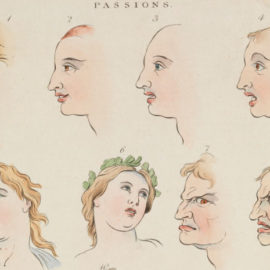

This article is an excerpt from the Shortform book guide to "Atlas of the Heart" by Brené Brown. Shortform has the world's best summaries and analyses of books you should be reading.
Like this article? Sign up for a free trial here .
What are “near enemies”? What are some examples of emotional near enemies?
According to Brené Brown, emotions and traits have “near enemies”—states that feel similar but come from a different place. For example, the near enemy of hope is blind optimism, and the near enemy of self-sufficiency is hyper-independence.
Here are some of the common near enemies you might fight within yourself.
Near Enemies
According to Brené Brown, emotions have their evil cousins. The term grew out of Buddhism and originally described something that seemed to be a helpful spiritual trait, but in reality got in the way of a person’s spiritual growth. For example, making grand shows of piety might make you look devout and enlightened, but you’re really just doing it to get attention and approval from others.
Brown frequently extends the idea of near enemies to emotions or thought patterns—for instance, jealous possessiveness might look like love, but it harms relationships instead of helping to build them.
Near enemies, by nature, are hard to recognize because they’re very similar to positive traits and states of mind. Noticing and rejecting them requires self-awareness and vigilance, and it helps if you know what to look for.
Here are a few of the most common near enemies to watch out for:
- Hope’s near enemy is blind optimism. While hope is the belief that things can get better, blind optimism causes you to think that everything will be okay without any effort on your part. Thus, you trap yourself into repeating the same mistakes over and over.
- Kindness’s near enemy is selflessness. Many of us were taught that selflessness is a good thing, but failing to set boundaries and take care of your own needs will quickly burn you out. As the saying goes, you can’t pour from an empty cup—you can’t help anyone if you’ve used up all of your strength.
- Self-sufficiency’s near enemy is hyper-independence. It’s good to be able to look after yourself, but when independence turns into the fear of getting close to others, or fear of accepting help, you could find yourself isolated and overwhelmed.
- Discipline’s near enemy is rigidity. If you have a strict schedule that you never allow yourself to deviate from, or if you have particular ways of doing things and can’t tolerate changes to that routine, you’re suffering from rigidity.

———End of Preview———
Like what you just read? Read the rest of the world's best book summary and analysis of Brené Brown's "Atlas of the Heart" at Shortform .
Here's what you'll find in our full Atlas of the Heart summary :
- Brené Brown's guide to the many emotions and mental states that people feel
- Explanations of 87 emotions, along with the situations where you’re likely to encounter them
- How to form deeper connections with the people around you






